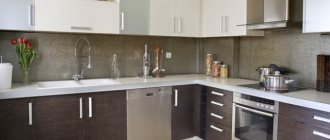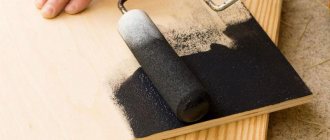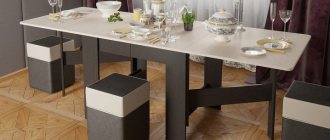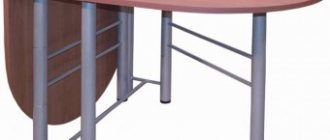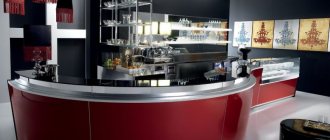Excursion into the history of the issue
In ancient times, the Chinese believed that the place where food was prepared was incredibly important to keeping the occupants of the house safe and healthy. Due to the importance of this room, special rules for arranging the kitchen according to Feng Shui were established.
Don't forget that the ancient Chinese cooked over an open fire. This meant that fire pits inside the cooking area had to be clean and safe, and starting and putting out fires required special techniques to maintain the health of the surrounding area. Some of the kitchen-related feng shui principles relate to these processes.
Modern kitchens do not have a fire pit, and therefore some of the feng shui rules associated with lighting a fire are no longer relevant. In fact, if we tried to apply all the rules of Feng Shui to our kitchens today, it would seem pointless and somewhat superstitious. However, some feng shui principles have stood the test of time and can (should!) be integrated into modern kitchen spaces to enhance the health and wealth of home owners.
Integrate an office into your kitchen during the planning stage
If you are thinking about creating an office in the kitchen at the planning stage, design it as a natural extension of the kitchen unit. When you want to move your mini-office to another room, you can use the place where you worked as a kitchen space. It will easily fit into the existing environment and become a full-fledged part of the room.
Novate.ru advises using exactly the same technique in the case of countertops. Just choose the same colors and materials for both the desktop and the kitchen unit so that nothing stands out from the overall composition.
Feng Shui kitchen colors. Rules
Each person reacts differently to different color combinations, so there is no one-size-fits-all approach to choosing a color palette for your kitchen. You should probably first of all focus on those colors that you like, that make you feel comfortable. However, here are some recommendations for choosing kitchen colors according to Feng Shui.
Blue
Blue is a complementary color to orange, which is well known to stimulate appetite. Unsurprisingly, blue has the opposite effect (some believe this is due to the fact that blue foods are rarely found in nature).
Using blue helps balance the energy of orange. But too much blue in the kitchen reduces the attractiveness of food: the effect produced may discourage novice cooks and those who like to cook for their loved ones.
Orange (and red)
Orange, like red, increases the attractiveness of food: a person in a kitchen painted in these colors begins to eat a lot and often. This may appeal to a novice cook who is trying to ensure that the dishes he prepares are to the taste of everyone.
However, using too much of the appetite-stimulating orange in the kitchen can cause you to overeat. If you do not want problems to arise, this color is best used in small doses.
Black
In kitchens designed according to Feng Shui rules, people try to avoid black because of the depressing effect of this color and its ability to visually compress the space. Black is very striking, but in the kitchen it can feel cold and isolated. In modern black and white kitchen interiors, it is recommended to add contrasting red accents, be it a towel, a kettle or even a bowl of red apples on the countertop.
However, Feng Shui still recommends avoiding a black and white color scheme. It's better to combine black with earthy tones - taupe, tan or even olive. This will reduce contrast and increase the warmth and friendliness of the kitchen space.
Soft yellow or gold
Along with earthy tones, soft, muted golds and yellows work great in the kitchen. They evoke a feeling of relaxation and comfort, a feeling of safety, security and happiness. These colors are associated with cheerful friendly gatherings and get-togethers, and this is what a dream kitchen should be like.
Kitchen design according to Feng Shui: practice
Cooking is an important element of human daily life. The correct approach to this process allows him and his family members to flourish in all areas of life. Cooking and cleaning up when finished are ways to demonstrate a person's desire to care not only for themselves, but also for those they love.
Tip: Pay attention to lighting
The kitchen, as a rule, is the next room in the house after the bathroom where a person goes in the morning after waking up, so it will be great if this space is as cheerful and sunny as possible. In fact, sunlight directly affects us by stimulating the production of serotonin and melatonin, thereby improving our mood.
Some kitchens boast an abundance of natural light. Other kitchens simply don't have this capability. In these cases, it would be beneficial to install a skylight or even a glass roof.
Tip: Make sure your kitchen utensils are functioning well
It seems obvious, but it is an important part of a well-functioning kitchen. Everything from properly sharpening kitchen knives to making sure kitchen cabinet doors and drawers close well work together for the benefit of the entire kitchen. Cracked mugs and cups should be replaced, and chipped paint touched up.
All this is very important for the kitchen. Ensuring the improvement of the kitchen from a Feng Shui point of view means that a person is able to take care of himself too.
Tip: Treat your stove with respect
As an important symbol of wealth in Feng Shui, the stove requires special respect. Keep it clean and in excellent technical condition. Use all the burners (burners) of the stove one at a time - this will help to evenly distribute the energy and bring positive qi into your space and life.
Tip: Hang a mirror above the stove
Of course, this advice doesn't apply to all kitchens, but if the space under your hood is dark, feng shui recommends hanging a mirror there to reflect the light and heat of the stove. It will be especially useful if the mirror also reflects the kitchen window, visually doubling it!
There is a myth that a feng shui mirror in the kitchen will double the wealth of your home, but don't hold your breath and expect it to magically happen. There is, however, another advantage of having a mirror behind the stove.
It consists in the fact that the person preparing the food will now be in the so-called “command position”, since he will be able to see what is happening behind him. This allows him to feel more comfortable, which from a Feng Shui point of view is favorable in any space.
Tip: Keep your kitchen clean
You may not know it, but Feng Shui places great importance on cleanliness, especially in areas that are directly related to health, including the kitchen. Keeping your kitchen clean involves more than just wiping down countertops once a day. Kitchen cabinets should also be cleaned regularly, both inside and out.
The same applies to household electrical appliances. Every day you need to wipe the kitchen apron, walls and countertops clean. Don't forget to sweep and mop the floor.
Tip: Keep your kitchen tidy
There is a clear distinction between a clean space and a space free of clutter, although sometimes the two concepts are combined into one overall entity. Kitchen countertops tend to accumulate on their surface all sorts of elements of a busy home life - mail, brochures, homework notebooks, store receipts, etc. can quickly take up the space needed for cooking.
A good rule of thumb is to only keep items on your countertop that are used frequently (daily or at least three times a week). Anything else will look like clutter and should therefore be stored in a closet or closet.
Tip: Keep knives out of sight
According to Feng Shui, knives make people feel at best uncomfortable, and at worst threatened and vulnerable. And although it is currently popular to store knives along the wall on a magnetic strip or in a special wooden block, Feng Shui recommends keeping them out of sight, for example, storing them in a desk drawer. Among other things, it is also safer.
Tip: Don't forget about wooden elements
In modern kitchens, you can easily find fire (stove), water (sink), metal (kitchenware and appliances) and earth (color). It remains to introduce the fifth element – wood. It's easy, you don't have to replace your cabinets with wood ones or anything like that.
Incorporating wood into your kitchen interior is quite simple. You can, for example, place the fruit in a wooden bowl, place a wooden cutting board or knife block in a visible place (if, despite our previous advice, you still use it). Even a small potted plant or just a picture of a plant can easily play this role.
Tip: Keep only what you actually use in your kitchen.
A general rule of thumb widely used in feng shui is to only keep things that you need and/or love. (Many interior designers use this rule in their work, regardless of whether they adhere to the principles of Feng Shui or not.)
As you regularly clean your kitchen, removing items from cabinets and drawers to wipe them down, constantly evaluate whether you are using the item and whether it is really worth continuing to store it in that cabinet. Rarely used items can and should be moved to less accessible storage areas (such as the top shelves of the pantry) or thrown out altogether.
While cleaning, you can also organize your kitchen utensils properly. Your kitchen will become more convenient and your cooking work more efficient if, for example, you place the toaster next to the bread rack and the baking dish next to the measuring cups and spoons.
Tip: Use large kitchen spaces for eating
If your kitchen has a large area, you can also place a dining area here. In this case, you are likely to find that the best energy flows inside the kitchen. The dining room serves an important purpose in Feng Shui, and the same purpose can be achieved in the kitchen, provided the latter is large enough to accommodate a separate eating area that has been prepared nearby.
Tip: Avoid large objects overhead
Some modern kitchens have pots and pans hanging from the ceiling, and this has already become a popular design trend. Of course, copper utensils are visually quite attractive and give the kitchen a real country house feel, but from a feng shui perspective it's not a good thing because heavy objects placed overhead tend to make us feel unsafe.
In a Feng Shui-designed kitchen, large pots, pans, and other large, heavy items are kept out of sight in pantries or kitchen cabinets.
If you notice an error, a non-working video or link, please select a piece of text and press Ctrl+Enter .
A and B sat on the pipe
There is a certain way of organizing the kitchen space, developed by designers. This method can be suitable for any kitchen space and does not depend on the size and dimensions. The general principles of organizing the workspace are based on the rule of the ideal “triangle”, when the main points are located at the vertices of a conditional equilateral triangle.
Therefore, it is recommended to place the corners of the working area at the vertices of the triangle, preferably at a distance of no more than 2 meters. Each individual corner of the triangle is a key element of the kitchen. One of the corners will be a stove for cooking, the second corner will be a sink for processing food, and the third will be a food source (refrigerator). For kitchens of any size, you can determine furniture placement options.
Then, in the linear placement option, the sink will be in the center, and the stove and refrigerator will close the work area at the edges of the chain. The main starting points of the kitchen are the sink and the hob. Therefore, from a functional point of view, it is recommended to have a fairly wide area to the left and right of the sink and stove. In this case, an important point is the dependence of the sink and stove on the location of the utility risers.
Your entire subsequent design of the work area in the kitchen will depend on the conventional shapes of the kitchen space. If the kitchen is small and cramped, and the risers are located at one of the vertices of the triangle, then the option of organizing the space in the form of the letters G, I, A will suit you. When choosing this option, the sink will be located in the center of the work area. If your luxurious kitchen is of considerable size, then you can organize the work area in the shape of the letters P or B. In any case, the dependence of the location of the work area on the existing water supply risers is clearly visible.





